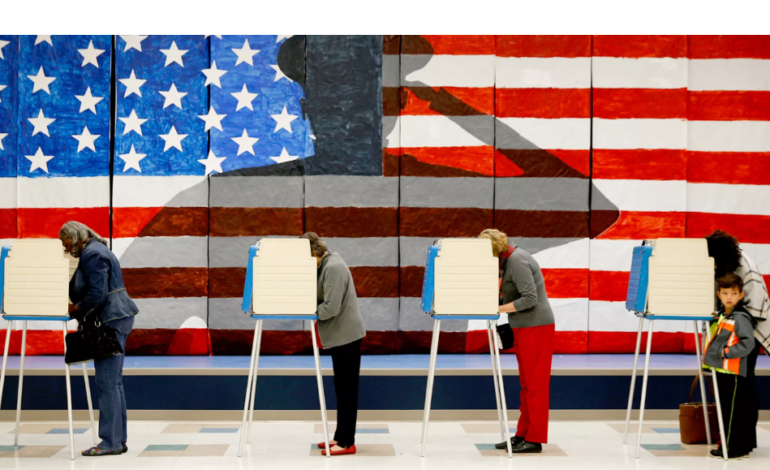
The Electoral College: A controversial system in U.S. Presidential Elections
Dr.(H) Avi Verma
The U.S. has a unique system for electing its president, known as the Electoral College. Unlike most democratic elections around the world, where the popular vote determines the winner, the Electoral College introduces a layer of complexity. This system allows a candidate to lose the popular vote but still become president by winning the majority of electoral votes. This raises a critical question: Is the Electoral College fair? Should it be changed?
How the Electoral College works
At its core, the Electoral College is a process, not a physical institution. It involves the selection of electors, casting votes, and counting those votes in Congress to determine the president and vice president. Each state gets a number of electors equal to its representation in Congress—its senators and House representatives. There are 538 electors in total, and a candidate needs at least 270 electoral votes to win the presidency. In most states, the winner of the popular vote takes all the electoral votes, though Maine and Nebraska use a proportional system.
However, the outcome isn’t decided by the direct popular vote of citizens but through these electors. This system was established in the U.S. Constitution as a compromise between a direct vote by the people and a vote by Congress.
Pros of the Electoral College
- Representation of Smaller States: The Electoral College system was designed to balance the interests of states with smaller populations against those with larger populations. Without the Electoral College, candidates might focus exclusively on populous urban areas, neglecting smaller or rural states. The system ensures that candidates campaign in a variety of states, giving less populated regions a voice.
- Preserves Federalism: The U.S. is a union of states with varying interests. The Electoral College reflects the country’s federal structure, ensuring states play a central role in electing the president, thus preserving the autonomy of individual states.
- Prevents Regional Dominance: The system prevents a candidate from winning by only appealing to a particular region or a single, concentrated demographic. To win, candidates must gather broad support across multiple states, making it more difficult for regional candidates to dominate.
Cons of the Electoral College
- Undermining the Popular Vote: One of the most significant criticisms is that the Electoral College can—and has—led to a candidate losing the popular vote but still winning the presidency. This happened in 2016, when Donald Trump won the presidency despite receiving fewer votes than Hillary Clinton. Similar outcomes occurred in 2000, with George W. Bush, and several times in the 19th century.
- Unequal Representation: Critics argue that the system leads to unequal representation, as not all votes are counted equally. A voter in a smaller state like Wyoming has more influence than a voter in California because of the way electoral votes are distributed. In essence, smaller states wield more power per voter compared to larger states, skewing the results.
- Swing State Focus: Because most states reliably vote for one party, the focus of presidential campaigns narrows to a handful of battleground or “swing” states. These are states where the vote could go either way, such as Pennsylvania, Florida, or Ohio. Voters in reliably “red” or “blue” states may feel that their votes don’t matter since their state is almost guaranteed to vote one way.
- Discouraging Voter Turnout: In non-swing states, voter turnout can be lower because many feel their vote won’t change the outcome. If the popular vote doesn’t decide the president, many question the value of participating in the election, especially in states with a clear partisan majority.
Should the Electoral College be changed?
This question has been at the heart of U.S. political debate for years. Reforming or abolishing the Electoral College would require a constitutional amendment, a challenging and lengthy process. While there is significant public support for changing the system, particularly after elections where the popular vote winner lost, the system’s defenders argue that it prevents regionalism and maintains the balance between states.
Is it fair?
The fairness of the Electoral College largely depends on one’s perspective. Supporters argue that it maintains the balance between populous and less populous regions, while critics see it as an outdated system that distorts democratic principles. The fact that the U.S. has twice in recent decades elected a president who lost the popular vote (in 2000 and 2016) raises concerns about the system’s legitimacy in the eyes of many Americans.
Does your vote count?
In theory, every vote counts toward a state’s total, which in turn decides the allocation of electoral votes. However, in practice, the focus on swing states means that voters in non-competitive states may feel like their votes have less impact on the final outcome. If you live in a solidly blue or red state, the Electoral College may make you feel like your vote doesn’t carry the same weight as someone living in a competitive state.
Conclusion: A system under scrutiny
The Electoral College remains one of the most controversial aspects of American democracy. Its defenders argue it is a necessary feature that protects the interests of smaller states and prevents regional dominance, while critics believe it undermines the principle of one person, one vote.
As the U.S. continues to grapple with questions of electoral fairness and representation, the debate over the Electoral College is likely to persist. Should the U.S. move toward a system where the popular vote alone determines the president? Or does the Electoral College still serve an important purpose in protecting the federal balance? These are burning questions that deserve serious consideration as the country looks toward the future of its democratic processes.